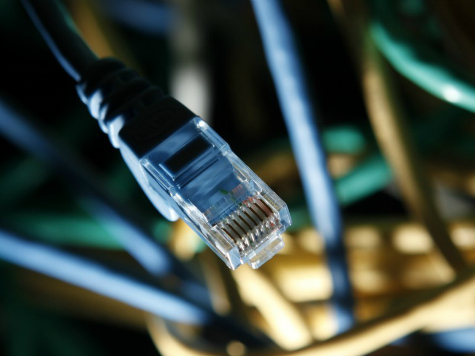“…expect the people of this nation to…overthrow you. By any means necessary.” “…for the Netflix and cat videos…” “Why not rename the constitution the Comcast-Time Warner Constitution of the United States.”
These are just a few of the coarse and hyperbolic statements submitted to the Federal Communications Commission (FCC) amid the public comment period for its recently-proposed “open Internet” order.
This marks yet another attempt by the FCC to enact broad regulations on the Internet, and its underlying lunacy is nothing new. These crude comments are an unfortunate symptom of how this debate has degenerated from a serious, network-engineering issue to bumper sticker rhetoric. And for their part, in naked pursuit of fundraising, far-left advocacy groups have been warning us for decades now that the “end of the Internet as we know it” is upon us.
The data, however, tells a far different story. According to the FCC itself, “the number of connections with downstream speeds of at least 10 Mbps increased by 118 percent over June 2012, to 103 million connections, including 58 million fixed connections and 45 million mobile connections.” Accordingly, the latest round of calls for strict net neutrality rules – including the possible reclassification of the Internet as a public utility (Title II) – are wholly unfounded. Not a single complaint was filed under 2010 Open Internet rules before they were vacated by the court in January. Before that, the extremely isolated complaints of ISP violations of the “four Open Internet principles” were anomalies and resolved quickly.
Indeed, the Internet – as former FCC Commissioner Robert McDowell testified recently, “is the greatest deregulatory success story of all time.” It is not only not broken, it is thriving, and the incessant calls by politically-favored, left-leaning content providers for the government to intrude through massive changes such as reclassification are detrimental to the continued growth and success of the Web. They are also rooted in the bizarre belief that should the government treat information services like utilities, then Facebook, Google, or other favorite websites will somehow remain immune from the treatment meted out to companies like Comcast or Verizon into perpetuity.
Newsflash: They won’t, if for no other reason than that there is too much convergence in communications today.
To the extent that the Internet does require a “fix,” changes must be holistic and geared towards updating woefully outdated laws last revised in 1996. Calls to enact drastic changes and massive government intervention to “fix” a non-existent problem, however, are not only puzzling, they run counter to the concept of the Internet as a free-market success story that has revolutionized our lives precisely in the absence of such big-government regulatory “fixes.”
Moreover, to the extent that problems do exist, real or expected consumer issues can already be addressed through the Federal Trade Commission (FTC), a body with a far superior track record compared to the FCC. In the absence of any reliable market study of the Internet, something that the FCC has conspicuously and actively avoided (perhaps because such studies would prove the opposite of what they hoped), the government must resist caving to the politicized demands of a small sliver of “digital elites” who want ordinary Americans to subsidize their content use.
All reasonable people ultimately want to see competition, growth, investment and innovation. The Internet represents a success story in each of those regards, but until the government stops listening to self-interested activists who misunderstand the Internet ecosystem and the nature of its success, it will remain under threat by calls for it to be controlled by the federal government. Even a cursory look at the other sectors of our lives dominated by such federal regulation should lead Americans to refute such misplaced calls for regulation.
The Internet has thrived in spite of regulation, not because of it. It is therefore incumbent upon all of us to contact our elected officials and demand that they fight Title II reclassification of the Internet. And if you have time, go ahead and write the FCC too – they could use some polite, sane comments too.
Timothy H. Lee is Vice President of Legal and Public Affairs at the Center for Individual Freedom, an Alexandria, Virginia-based nonprofit free-market and constitutional rights organization.

COMMENTS
Please let us know if you're having issues with commenting.